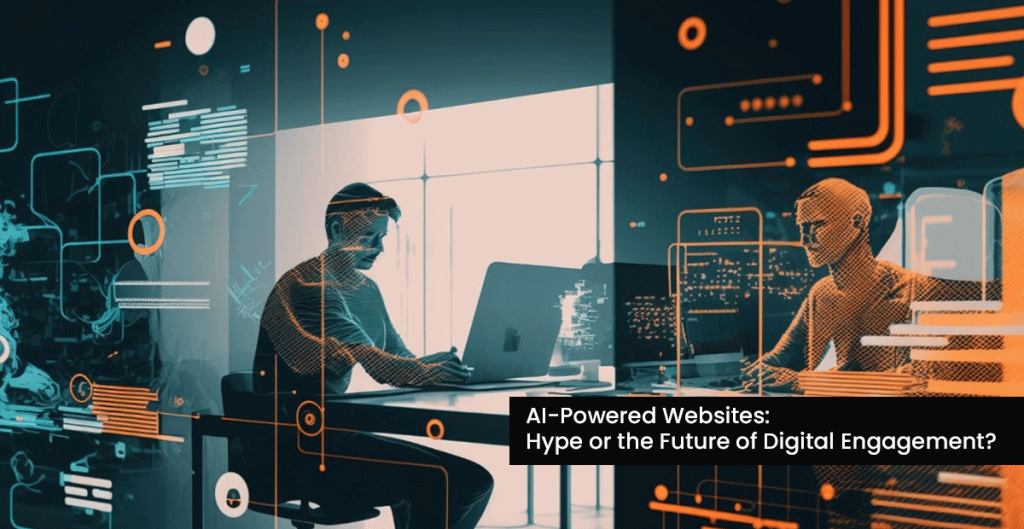In a time of increasingly short attention spans and rising customer expectations, websites don’t just need to look good, they need to be smart. Now along comes AI-powered websites, the latest frontier of digital engagement. But is this just another overhyped fad, or a glimpse at the future of the way businesses connect with their audiences on the internet?
The short version: AI driven websites are not just hype; they’re transforming digital experiences for business in all sectors. And if you’re working with a progressive web development company, using AI in your site is not some far off target. Its something that can begin adding value now.
Let’s unpack what these solutions are, the various kinds of AI solutions, and which kind of businesses would most benefit from making their businesses smart.Read More from This Article.
What Are AI Powered Websites?
In essence, an artificial intelligence website is one that utilises AI to offer a more personal, intuitive or enhanced experience to the user. The point is, these are not static platforms that serve the same thing to everyone that comes knocking, these websites change how they behave based on what a user does on a site, or puts into it, or even using data to try to predict what they should do.
The capabilities are developed using a variety of AI technologies such as machine learning, natural language processing (NLP), computer vision, recommendation engines, and chatbots.
Key AI Solutions Driving Digital Engagement
1. Conversational Chatbots and Virtual Assistants
An important example of AI usage is, probably, the implementation of chatbots on websites. Thanks to natural language processing, advanced chatbots can not only hold detailed dialogues but also help complete transactions, provide instant answers to questions, and lead users through the buying process flow at the same time.
Example eCommerce websites such as ASOS or Sephora implement chatbots to familiarize the customers with the latest products, keep the clients informed about the status of their shipments, and also give them fashion advice.
2. Personalization Engines
AI has the capability of looking through huge amounts of user information, for example, browsing history, demographics, and behavior patterns, and come up with customized content, product suggestions, and calls to action.
For instance, Amazon incorporates AI to make the best fit product recommendations by utilizing information related to previous purchases, searches, and behavior of customers with similar interests.
3. Voice Enabled Navigation
The use of voice search and voice commands is also becoming more of a normalization with the introduction of smart devices on AI-powered websites where voice assistants can be integrated to enable a user to search for content or navigate through pages or even make a purchase.
The ordering system in example Domino s voice lets the user place an order without clicking a button.
4. Visual Search and Image Recognition
Computer vision technology enables the user to input an image and discover other related products or content. This applies particularly to the fashion, home decor, and retail industries.
The Lens of example pinterest allows users to take a photo and discover pins about the items in that image.
5. AI Driven Analytics and Insights
Under the hood, AI assists site owners in learning what users do at the micro level. Heatmaps, predictive analytics, churn analysis and automated A/B testing enable businesses to optimize the user journey in an ongoing cycle.
Example: Hotjar or Crazy Egg apps are based on the AI to show how users interact with the site to enable companies to optimize their web design and content.
Who Stands to Benefit Most?
There is no such thing as an AI powered website, but some industries and business models benefit unfairly by implementing AI solutions.
1. E Commerce and Retail
Personalization is not an option for online retailers anymore. AI can be used to recommend products and achieve dynamic pricing and targeted promotions that directly influence sales.
Why it is important: It will lead to better conversion rates, lower cart abandonment, and increased average order values.
2. Healthcare
AI chatbots can triage patient symptoms, recommend wellness plans tailored to each individual, and help with scheduling an appointment, providing health care providers with a chance to significantly enhance patient engagement and operational efficiency.
Why it is important: Improved patient outcomes and tremendous time savings by employees.
3. Finance and Insurance
AI could be used to automate customer support, identify fraudulent activities, or provide individual financial guidance or insurance offers to users, based on their data.
Why it is important: Less risk, more trust, and simplified customer experiences.
4. Education and eLearning
AI is useful in providing individualized learning journeys, automated scoring, and virtual tutors.
Why it is important: Higher levels of student involvement and better performance.
5. Real Estate
In addition to AI chatbots that can respond to property inquiries, virtual tours, and price prediction software, AI can make real estate websites very interactive and user friendly.
Why it is important: The sooner the lead is converted and the more the user is engaged.
Final Thoughts: Hype or Future?
The hype about the AI driven sites is not baseless. It is founded on tangible, quantifiable increases in user experience, business efficiency, and business generation As the consumers change, stagnant websites will soon be phased out. Individuals who adopt AI not only future-proof their online existence but also make the gateway to a whole new horizon of personalization and engagement.
To arrive there it’s not merely plugging in tools but getting the proper web development services to create, integrate and optimize Artificial Intelligence in a manner that actually moves the needle.In a digital first world where impressions happen in milliseconds AI may be the advantage your business wants.
